Steve Pavlina's Best Productivity Tips
Dagny Larkinにより

1. Daily goals.
1.1. Without a clear focus, it’s too easy to succumb to distractions. Set targets for each day in advance. Decide what you’ll do; then do it.
2. Worst first.
2.1. To defeat procrastination learn to tackle your most unpleasant task first thing in the morning instead of delaying it until later in the day. This small victory will set the tone for a very productive day.
3. Relaxify.
3.1. Reduce stress by cultivating a relaxing, clutter-free workspace.
4. Gap reading.
4.1. Use reading to fill in those odd periods like waiting for an appointment or riding the subway.
5. Glittering prizes.
5.1. Give yourself frequent rewards for achievement. See a movie, book a professional massage, or spend a day at an amusement park.
6. Slice and dice.
6.1. Break complex projects into smaller, well-defined tasks. Focus on completing just one of those tasks.
7. Single-handling.
7.1. Once you begin a task, stick with it until it’s 100% complete. Don’t switch tasks in the middle. When distractions come up, jot them down to be dealt with later.
8. 30 days.
8.1. Identify a new habit you’d like to form, and commit to sticking with it for just 30 days. A temporary commitment is much easier to keep than a permanent one. See 30 Days to Success for details.
9. Cross-pollination.
9.1. Sign up for martial arts, start a blog, or join an improv group. You’ll often encounter ideas in one field that can boost your performance in another.
10. Optimization.
10.1. Identify the processes you use most often, and write them down step-by-step. Refactor them on paper for greater efficiency. Then implement and test your improved processes.
11. Peak times.
11.1. Identify your peak cycles of productivity, and schedule your most important tasks for those times. Work on minor tasks during your non-peak times.
12. No-comm zones.
12.1. Allocate uninterruptible blocks of time for solo work where you must concentrate. Schedule light, interruptible tasks for your open-comm periods and more challenging projects for your no-comm periods.
13. Mini-milestones.
13.1. When you begin a task, identify the target you must reach before you can stop working. For example, when working on a book, you could decide not to get up until you’ve written at least 1000 words. Hit your target no matter what.
14. Batching.
14.1. Batch similar tasks like phone calls or errands into a single chunk, and knock them off in a single session.
15. Early bird.
15.1. Get up early in the morning, like at 5am, and go straight to work on your most important task. You can often get more done before 8am than most people do in a day.
16. Cone of silence.
16.1. Take a laptop with no network or WiFi access, and go to a place where you can work flat out without distractions, such as a library, park, coffee house, or your own backyard. Leave your comm gadgets behind.
17. Agendas.
17.1. Provide clear written agendas to meeting participants in advance. This greatly improves meeting focus and efficiency. You can use it for phone calls too.
18. Pareto.
18.1. The Pareto principle is the 80-20 rule, which states that 80% of the value of a task comes from 20% of the effort. Focus your energy on that critical 20%, and don’t overengineer the non-critical 80%.
19. Ready-fire-aim.
19.1. Bust procrastination by taking action immediately after setting a goal, even if the action isn’t perfectly planned. You can always adjust course along the way.
20. Delegate.
20.1. Convince someone else to do it for you.


